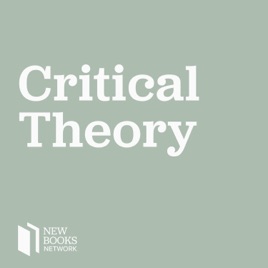
Advertise on podcast: New Books in Critical Theory
Rating
3.9 from
Country
This podcast has
1551 episodes
Language
Publisher
Explicit
No
Date created
2013/01/15
Average duration
51 min.
Release period
2 days
Description
Interviews with Scholars of Critical Theory about their New Books Support our show by becoming a premium member! https://newbooksnetwork.supportingcast.fm/critical-theory
Social media
Check New Books in Critical Theory social media presence
Podcast episodes
Check latest episodes from New Books in Critical Theory podcast
Yanis Varoufakis, "Technofeudalism: What Killed Capitalism" (Melville House, 2023)
2024/02/26
In Technofeudalism: What Killed Capitalism (Melville House, 2023), Yanis Varoufakis argues that capitalism is dead and a new economic era has begun.
Insane sums of money that were supposed to re-float our economies in the wake of the financial crisis and the pandemic have ended up supercharging big tech's hold over every aspect of the economy. Capitalism's twin pillars - markets and profit - have been replaced with big tech's platforms and rents. Meanwhile, with every click and scroll, we labour like serfs to increase its power. Welcome to technofeudalism.
Drawing on stories from Greek Myth and pop culture, from Homer to Mad Men, Varoufakis explains this revolutionary transformation: how it enslaves our minds, how it rewrites the rules of global power and ultimately what it will take overthrow it.
Louisa Hann attained a PhD in English and American studies from the University of Manchester in 2021, specialising in the political economy of HIV/AIDS theatres.
Learn more about your ad choices. Visit megaphone.fm/adchoices
Support our show by becoming a premium member! https://newbooksnetwork.supportingcast.fm/critical-theory
more
Thuy Linh Nguyen Tu, "Experiments in Skin: Race and Beauty in the Shadows of Vietnam" (Duke UP, 2021)
2024/02/26
Through a creative focus on skin, in Experiments in Skin: Race and Beauty in the Shadows of Vietnam (Duke UP, 2021), Thuy Linh Nguyen Tu examines the ongoing influence of the Vietnam War on contemporary ideas about race and beauty. Framing skin as the site around which these ideas have been formed, Tu foregrounds the histories of militarism in the production of US biomedical knowledge and commercial cosmetics. She uncovers the efforts of wartime scientists in the US Military Dermatology Research Program to alleviate the environmental and chemical risks to soldiers' skin. These dermatologists sought relief for white soldiers while denying that African American soldiers and Vietnamese civilians were also vulnerable to harm. Their experiments led to the development of pharmaceutical cosmetics, now used by women in Ho Chi Minh City to tend to their skin, and to grapple with the damage caused by the war's lingering toxicity.
In showing how the US military laid the foundations for contemporary Vietnamese consumption of cosmetics and practices of beauty, Tu shows how the intersecting histories of militarism, biomedicine, race, and aesthetics become materially and metaphorically visible on skin.
Yadong Li is a PhD student in socio-cultural anthropology at Tulane University. He is interested in the anthropology of time, hope studies, and post-structuralist philosophy. If you are interested in any of these topics, feel free to contact him by email: yli88@tulane.edu / lydooooong@gmail.com.
Learn more about your ad choices. Visit megaphone.fm/adchoices
Support our show by becoming a premium member! https://newbooksnetwork.supportingcast.fm/critical-theory
more
Imani D. Owens, "Turn the World Upside Down: Empire and Unruly Forms of Black Folk Culture in the U.S. and Caribbean" (Columbia UP, 2023)
2024/02/23
In the first half of the twentieth century, Black hemispheric culture grappled with the legacies of colonialism, U.S. empire, and Jim Crow. As writers and performers sought to convey the terror and the beauty of Black life under oppressive conditions, they increasingly turned to the labor, movement, speech, sound, and ritual of everyday “folk.” Many critics have perceived these representations of folk culture as efforts to reclaim an authentic past. Imani D. Owens recasts Black creators’ relationship to folk culture, emphasizing their formal and stylistic innovations and experiments in self-invention that reach beyond the local to the world.
Turn the World Upside Down: Empire and Unruly Forms of Black Folk Culture in the U.S. and Caribbean (Columbia UP, 2023) explores how Black writers and performers reimagined folk forms through the lens of the unruly―that which cannot be easily governed, disciplined, or managed. Drawing on a transnational and multilingual archive―from Harlem to Havana, from the Panama Canal Zone to Port-au-Prince―Owens considers the short stories of Eric Walrond and Jean Toomer; the ethnographies of Zora Neale Hurston and Jean Price-Mars; the recited poetry of Langston Hughes, Nicolás Guillén, and Eusebia Cosme; and the essays, dance work, and radio plays of Sylvia Wynter. Owens shows how these figures depict folk culture―and Blackness itself―as a site of disruption, ambiguity, and flux. Their works reveal how Black people contribute to the stirrings of modernity while being excluded from its promises. Ultimately, these works do not seek to render folk culture more knowable or worthy of assimilation, but instead provide new forms of radical world-making.
Omari Averette-Phillips is a doctoral student in the Department of History at UC Davis. He can be reached at omariaverette@gmail.com.
Learn more about your ad choices. Visit megaphone.fm/adchoices
Support our show by becoming a premium member! https://newbooksnetwork.supportingcast.fm/critical-theory
more
Katharina Pistor, "The Code of Capital: How the Law Creates Wealth and Inequality" (Princeton UP, 2019)
2024/02/22
"Most lawyers, most actors, most soldiers and sailors, most athletes, most doctors, and most diplomats feel a certain solidarity in the face of outsiders, and, in spite of other differences, they share fragments of a common ethic in their working life, and a kind of moral complicity."
– Stuart Hampshire, Justice is Conflict.
There are many more examples of professional solidarity, however fragmented and tentative, sharing the link of a common ethic that helps make systems, and the analysis of them, possible in the larger political economy. Writing from a law professor’s vantage point, Katharina Pistor, in her new book, The Code of Capital: How the Law Creates Wealth and Inequality (Princeton University Press, 2019) explains how even though law is a social good it has been harnessed as a private commodity over time that creates private wealth, and plays a significant role in the increasing disparity of financial outcomes.
As she points out in this interview, and her chapter ‘Masters of the Code’, it is ‘critical to have lawyers in the room’, and they clearly have the lead role in her well-researched and nuanced thesis centered on the decentralized institution of private law. Professor Pistor builds on Rudden’s ‘feudal calculus’ providing the long view of legal systems in maintaining and creating wealth and draws on historical analogies including the enclosure movements as she interweaves her analysis of capital asset creation with a broader critique of professional and institutional agency. Polanyi and Piketty figure into Pistor’s analysis among many others, as does the help of the state’s coercive backing as she draws on the breadth of her own governance research and analysis of the collapsed socialist regimes in the 1990s, and a research pivot toward western market economies following the 2008 Global Financial Crisis.
Professor Pistor is a comparative scholar with a keen interdisciplinary eye for the relationship between law, values, and markets, dovetailing larger concepts with detailed descriptions of the coding of ‘stocks, bonds, ideas, and even expectations—assets that exist only in law.’ All of which informs her inquiry into why some legal systems have been more accommodating to capital’s coding cravings and others less so, as she describes the process by which capital is created. She moves beyond legal realism’s less granular critiques, and as reviewers such as Samuel Moyn have suggested – this book ‘deserves to be the essential text of any movement today that concerns itself with law and political economy’.
Katharina Pistor is the Edwin B. Parker Professor of Comparative Law, and the Director of the Center on Global Legal Transformation at Columbia Law School.
Keith Krueger lectures at the SHU-UTS Business School in Shanghai.
Learn more about your ad choices. Visit megaphone.fm/adchoices
Support our show by becoming a premium member! https://newbooksnetwork.supportingcast.fm/critical-theory
more
Neil Lee, "Innovation for the Masses: How to Share the Benefits of the High-Tech Economy" (U California Press, 2024)
2024/02/21
How can we build a more equal economy? In Innovation for the Masses: How to Share the Benefits of the High-Tech Economy (U California Press, 2024), Neil Lee, a Professor of Economic Geography at the London School of Economics, explores the question of how societies have fostered and supported innovation. The book challenges conventional assumptions that innovative economies must be unequal. Drawing on 4 detailed, and critical, case studies- Switzerland, Austria, Taiwan and Sweden, the book shows how Europe has good models of innovation; how the state matters; and how innovation and shared prosperity policies are mutually reinforcing. Accessible and clearly written, the book will be essential reading across social sciences and public policy, as well as anyone wanting a blueprint for equitable economic development,
Learn more about your ad choices. Visit megaphone.fm/adchoices
Support our show by becoming a premium member! https://newbooksnetwork.supportingcast.fm/critical-theory
more
Todd McGowan, "Emancipation After Hegel: Achieving a Contradictory Revolution" (Columbia UP, 2019)
2024/02/19
An Interview with Todd McGowan about his recent Emancipation After Hegel: Achieving a Contradictory Revolution (Columbia University Press, 2019). The book advocates for the relevance of Hegel’s dialectical method to questions of contemporary theory and politics. It seeks to disabuse readers of common misapprehensions concerning Hegel’s philosophy, such as the familiar thesis-antithesis-synthesis schema to which the dialectic has so often been reduced, and to show that the concept of contradiction understood in Hegelian fashion is intrinsically subversive of authority. By championing contradiction over ‘difference’ it defies the rhetoric of much leftist theory as it has been formulated in the wake of so-called ‘post-structuralism’. Emancipation After Hegel also combines sophisticated discussion of matters like the limits of formal logic and the history of German Idealism with playful allusions to Star Trek characters and classic films like Casablanca and Bridge on the River Kwai.
Bill Schaffer is a semi-retired academic and writer. He received his PhD from the University of Sydney and held positions teaching Film Studies, Philosophy, and Literature at campuses in Australia and the UK. He has published widely in Film and Animation Studies. He is currently a scholar of No Fixed Institution.
Learn more about your ad choices. Visit megaphone.fm/adchoices
Support our show by becoming a premium member! https://newbooksnetwork.supportingcast.fm/critical-theory
more
Hamza Hamouchene and Katie Sandwell, "Dismantling Green Colonialism: Energy and Climate Justice in the Arab Region" (Pluto Press, 2023)
2024/02/16
Just in Time - the urgent need for a just transition in the Arab region. The newly published book Dismantling Green Colonialism: Energy and Climate justice in the Arab Region (Pluto Press, 2023) edited by Hamza Hamouchene and Katie Sandwell questions the development of sustainable energy production in the middle eastern and north African region. Positioning itself as part of a wider discussion of just transition, it provides wonderful insight into the colonial and capitalist narratives used to legitimise projects coming from the Global North. Furthermore, it highlights the fact that there is a need to deconstruct environmental orientalism to tackle questions of power at a local, regional, and international level.
Hamza Hamouchene is a researcher, activist and the programme coordinator for Africa at the Transnational Institute, based in the UK. Originally from Algeria, he brings wide understanding of climate and social justice.
Sarah Vogelsanger is a master student at SOAS in "Environment, Politics, and Development" and passionate about feminist approaches to social justice and political ecology.
Learn more about your ad choices. Visit megaphone.fm/adchoices
Support our show by becoming a premium member! https://newbooksnetwork.supportingcast.fm/critical-theory
more
Criticism
2024/02/15
In this episode of High Theory, Matt Seybold tells us about Criticism, the glue that holds the bricks of culture together. Cultural critics are a necessary component of the intellectual ecosystem, who have the power to analyze both the material conditions and the myths that make up our world.
Matt is the host of the American Vandal Podcast at the Center for Mark Twain Studies at Elmira College. In his recent podcast series, Criticism, LTD, Matt investigated the state of criticism in the academy and the public sphere. There is a nifty substack newsletter with the transcripts from Criticism, LTD, if you’re keen. Kim and Saronik were among the many podcasters, public intellectuals, and critics that Matt interviewed for the series, and we’re excited to have him back on High Theory to tell us about his investigations.
In the episode he offers a recuperative reading of Mark Twain’s acerbic take on critics in his late notebooks: “The critic’s symbol should be the tumble-bug; he deposits his egg in somebody else’s dung, otherwise he could not hatch it.” (see p. 392 of this Harper & Brothers, 1935 edition of Twain’s Collected Works, on archive.org). He references Jacques Derrida’s book, Limited Inc (Northwestern UP, 1988), which contains the *famous* essay “Signature, Event, Context” and a critical debate about Apartheid. And he also discusses Jed Esty’s Future of Decline: Anglo-American Culture at Its Limits (Stanford UP, 2022) and our episode with Jed on the Rhetoric of Decline. You can also take a listen back to Matt’s earlier episode with us on Economics.
Matt Seybold is Associate Professor of American Literature & Mark Twain Studies at Elmira College, as well as Resident Scholar at the Center For Mark Twain Studies. He is the executive producer and host of the American Vandal Podcast, and founding editor of MarkTwainStudies.org. He is co-editor (with Michelle Chihara) of of the Routledge Companion to Literature & Economics (2018)and (with Gordon Hutner) a 2019 special issue of American Literary History on “Economics & Literary Studies in The New Gilded Age.” Recent articles can be found in the Mark Twain Annual, American Studies, Reception, and Los Angeles Review of Books. He tweets (or exes?) @MEASeybold.
The image for this episode was made by Saronik Bosu in 2024.
Learn more about your ad choices. Visit megaphone.fm/adchoices
Support our show by becoming a premium member! https://newbooksnetwork.supportingcast.fm/critical-theory
more
Kareem Khubchandani, "Decolonize Drag" (OR Books, 2023)
2024/02/14
Kareem Khubchandani’s book Decolonize Drag (OR Books, 2024) explores the intricate interplay among gender, colonialism, and drag performance. It illustrates how gender serves as a tool of colonial governance, stifling diverse forms of expression, while also delving into how contemporary drag both mirrors and disrupts these entrenched institutional hierarchies. Through the lens of select performers, Khubchandani unveils how they use their art to satirize, deconstruct, and resist colonialism and the manifestations of white supremacy embedded within society. Central to the narrative is Khubchandani’s drag alter ego, LaWhore Vagistan, whose firsthand experiences shed light on encounters with depoliticized iterations of drag that fall short of its transformative potential, leaving her disheartened and bewildered. Decolonize Drag advocates for the proliferation of more inclusive and accessible avenues for gender expression while also contemplating how the meaning and impact of drag evolve across different social and geographical contexts.
As an educator, scholar, and performer, Dr. Kareem Khubchandani channels his expertise and passion within feminist, queer, and trans aesthetics, with a focus on South Asia and its diaspora. Khubchandani is an associate professor in theatre, dance, and performance studies at Tufts University.
Latoya Johnson is an editor, writer, and bibliophile with a master's in Humanities. Her research and writing delve into various aspects of popular culture. She is particularly interested in exploring the public history of women's fiction and the portrayal of femme characters in Greco-Roman mythology.
Learn more about your ad choices. Visit megaphone.fm/adchoices
Support our show by becoming a premium member! https://newbooksnetwork.supportingcast.fm/critical-theory
more
Josh Fernandez, "The Hands That Crafted the Bomb: The Making of a Lifelong Antifascist" (PM Press, 2024)
2024/02/13
Today I talked to Josh Fernandez about his new memoir The Hands That Crafted the Bomb: The Making of a Lifelong Antifascist (PM Press, 2024).
Josh Fernandez is a community college professor in Northern California who finds himself under investigation for “soliciting students for potentially dangerous activities” after starting an antifascist club on campus.
As Fernandez spends the year defending his job, he reflects on a life lived in protest of the status quo, swept up in chaos and rage, from his childhood in Boston dealing with a mentally ill father and a new family to a move to Davis, California, where, in the basement shows of the early ’90s, Nazi boneheads proliferated the music scene, looking for heads to crack. His crew’s first attempts at an antifascist group fall short when a member dies in a knife fight.
A born antiauthoritarian, filled with an untamable rage, Fernandez rails against the system and aggressively chooses the path of most resistance. This leads to long spates of living in his car, strung out on drugs, and robbing the whiteboys coming home from the clubs at night. He eventually realizes that his rage needs an outlet and finds relief for his existential dread in the form of running. And fighting Nazis. Fernandez cobbles together a life for himself as a writing professor, a facilitator of a self-defense collective, a boots-on-the-ground participant in Antifa work, and a proud father of two children he unapologetically raises to question authority.
Josh Fernandez is an antiracist organizer, a father, a runner, a fighter, an English professor, and a writer whose stories have appeared in Spin, the Sacramento Bee, the Hard Times, and several alternative news weeklies. He lives in Sacramento, CA.
Learn more about your ad choices. Visit megaphone.fm/adchoices
Support our show by becoming a premium member! https://newbooksnetwork.supportingcast.fm/critical-theory
more
Lehasa Moloi, "Developing Africa?: New Horizons with Afrocentricity" (Anthem Press, 2024)
2024/02/12
Developing Africa? New Horizons with Afrocentricity (Anthem Press, 2024) is written for those who are interested in theoretical debates as they relate to the field of Development Studies. It is aimed at academics and all those who work in the field of development, politicians, policy-makers and civil servants who need to familiarize themselves with key historical development debates, especially those relevant to Africa. The book takes an Afrocentric intellectual standpoint, grounded in the theory of Afrocentricity, in its interrogation of the idea and processes of development in Africa. It also adopts an historical approach in its interrogation of the idea of African development as a by-product of political deliberations. This book is about how the discourse of development as a field of study needs to be re-oriented towards African-based epistemologies to dismantle coloniality, in opposition to the historical embeddedness of development discourse in Eurocentrism.
This book contests the limitation of the modern African understanding of Africa’s journey with development to the period of the aftermath of World War II, to be specific, to President Harry S. Truman’s 1949 Point Four programme. Instead, the book argues that, that journey should be understood holistically. By this, I mean that Africa’s engagement with development did not begin with the politics of the Euro-North American political bloc – the story of African development must take into consideration Africa’s classical civilization, namely, the Nile Valley civilization and its contributions to human civilization. Such an approach provides a more holistic interrogation and casts light on how Africa’s history of greatness continues to be an inspiration even in modern times. Such an approach rejects the many reductionist lies and half-truths that undergird the modernist paradigm which seeks to portray African people as dependent beneficiaries of the colonial Euro-modernity framework. This framework has undermined the humanity of non-Western people in general, and Africans in particular. The book pursues the tradition of decolonial epistemic reflections grounded on Afrocentricity as its theoretical thrust to oppose discourses that are riddled with a racist agenda towards those in the Global South, especially in Africa to enable endogeneity. In the spirit of the pursuit for cognitive justice in the 21st century, this book argues that the discourse of development must be decolonized from hegemonic Eurocentric propaganda and needs to be framed from the viewpoint of those who have been seen as being on the receiving end, those projected as “backwards” from a Eurocentric perspective.
Learn more about your ad choices. Visit megaphone.fm/adchoices
Support our show by becoming a premium member! https://newbooksnetwork.supportingcast.fm/critical-theory
more
James L. Gibson and Michael J. Nelson, "Judging Inequality: State Supreme Courts and the Inequality Crisis" (Russell Sage, 2021)
2024/02/12
Soaring levels of political, legal, economic, and social inequality have been documented by social scientists – but the public conversation and scholarship on inequality has not examined the role of state law and state courts in establishing policies that significantly affect inequality. Political scientists James L. Gibson and Michael J. Nelson analyze their original database of nearly 6,000 decisions made by over 900 judges on 50 state supreme courts over a quarter century to demonstrate how state high courts craft policy. The fifty state supreme courts shape American inequality in two ways: through substantive policy decisions that fail to advance equality and by rulings favoring more privileged litigants (typically known as "upperdogs").
The book focuses on court-made public policy on issues including educational equity and adequacy, LGBTQ+ rights, and worker's rights. The conventional wisdom assumes that courts protect underdogs from majorities but Gibson and Nelson demonstrate that judges most often favor dominant political elites and coalitions. As such, courts are unlikely to serve as an independent force against the rise of inequality in the United States.
James Gibson is the Sidney W. Souers Professor of Government at Washington University in Saint Louis. His research interests are in Law and Politics, Comparative Politics, and American Politics.
Michael Nelson is a Professor of Political Science at Penn State University. He studies judicial politics and U.S. state politics, especially public attitudes toward law and courts, judicial behavior, and the politics of court reform. Michael was a guest on the New Books Network for the The Elevator Effect, a book he co-wrote with Morgan Hazelton and Rachael K. Hinkle in 2023.
In the podcast, we mention Dr. Gibson’s brand new article regarding the Dobbs abortion case: “Losing legitimacy: The challenges of the Dobbs ruling to conventional legitimacy theory” from the American Journal of Political Science.
Daniela Lavergne served as the editorial assistant for this podcast.
Susan Liebell is a Professor of Political Science at Saint Joseph’s University in Philadelphia.
Learn more about your ad choices. Visit megaphone.fm/adchoices
Support our show by becoming a premium member! https://newbooksnetwork.supportingcast.fm/critical-theory
more
Podcast reviews
Read New Books in Critical Theory podcast reviews
Palunargar
2023/11/14
Important topics to be understood
I really appreciate the work of this podcast on exploring topics from the academic perspective in areas of philosophy, political science, sociology an...
more
vc jrr gr gh
2024/01/23
Extremely disappointing. I thought this was a rigorous leftist podcast.
I used to listen to this podcast regularly, but I will no longer be doing so. The episode with genocide apologist Susie Linfield was offensive, racis...
more
GrssyGrn
2023/10/09
Wide ranging, valuable scholarship
I’m thankful for these young, inspired, articulate people, sharing ideas to improve our world
gg.s.y
2023/02/03
Hit Or Miss
Some of these interviews were conducted by peers who have great insight into the subjects discussed.
Others sound like an undergraduate intern doing...
more
nachtragglichkeit
2021/04/18
love it
brit all the episodes are amazing and spectacular but your conversation with michael d snediker left me wanting more! spin-off joint podcast that is y...
more
nendjksjenf
2021/07/27
Critical theory is a logical fail.
This series is full of racism, intolerance, people generalizing their own anecdotes across whole peoples and societies, narcissistic delusions and opp...
more
A Syrian NoOne
2020/07/20
Syrian
Thank you Critical Theory. To be able to see as clearly and confidently through such mountains of falsification, intimidation, and mind manipulation ...
more
MathySaxWailer
2020/11/22
“Brought to you by Goldman Sachs”
Did I hear this incorrectly, or is GS actually sponsoring this podcast? That’s like if the Israeli State began sponsoring a Hamas podcast.
dabidm
2020/08/05
Re: Michael Rechtenwald
This review is specifically in reference to the episode featuring Michael Rechtenwald and his book “Beyond Woke,” which I found to be a deeply frustra...
more
JTR ROUND ROCK
2018/05/22
‘New...” Jewish/Indian/Gay “Books in Critical Theory”?
Not a fair title for these pods if you’re going to let one or two ethnic groups dominate.
Just a fan of truth in advertising.
Podcast sponsorship advertising
Start advertising on New Books in Critical Theory & sponsor relevant audience podcasts
You may also like these social sciences Podcasts
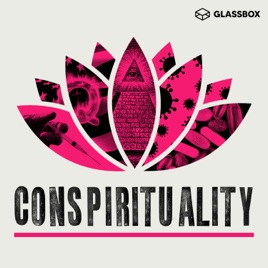
4
1526
507
Conspirituality
Derek Beres, Matthew Remski, Julian Walker
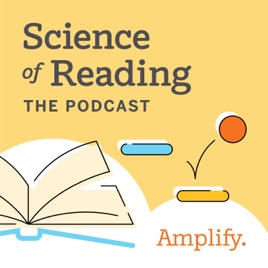
4.6
500
124
Science of Reading: The Podcast
Amplify Education

4.6
5553
892
Something You Should Know
Mike Carruthers | OmniCast Media | Cumulus Podcast Network
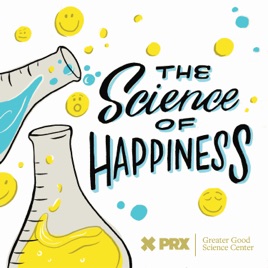
4.5
1733
213
The Science of Happiness
PRX and Greater Good Science Center
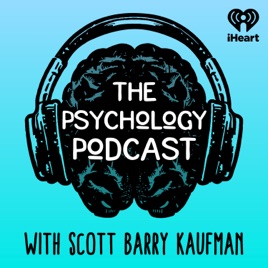
4.4
1648
409
The Psychology Podcast
iHeartPodcasts
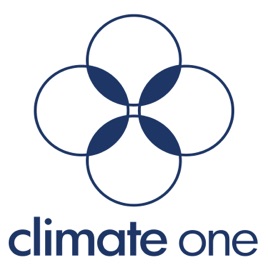
4.7
502
765
Climate One
Climate One from The Commonwealth Club

4.8
1260
234
Therapist Uncensored Podcast
Sue Marriott LCSW, CGP & Ann Kelley PhD

4.5
21516
84
Invisibilia
NPR

4.3
3245
550
Mysterious Radio: Paranormal, UFO & Lore Interviews
Mysterious Radio: Paranormal, UFO & Lore Interviews
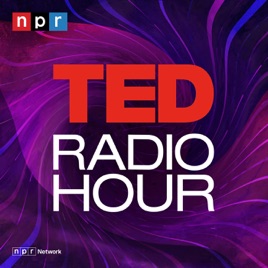
4.3
20160
326
TED Radio Hour
NPR



